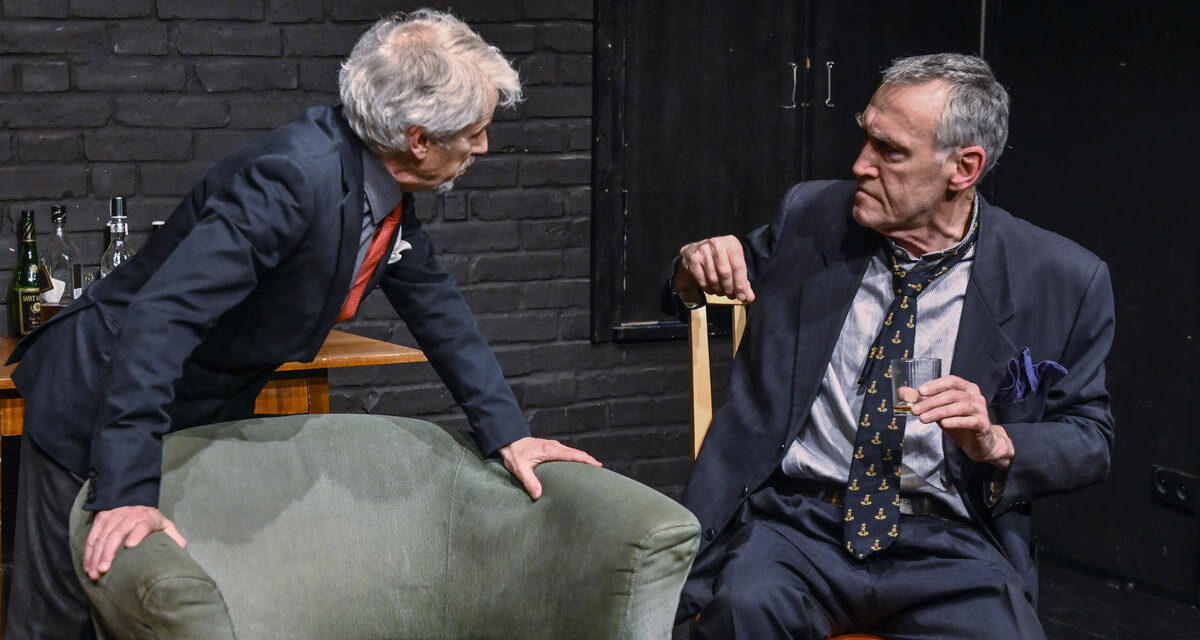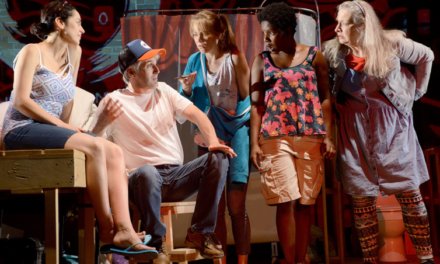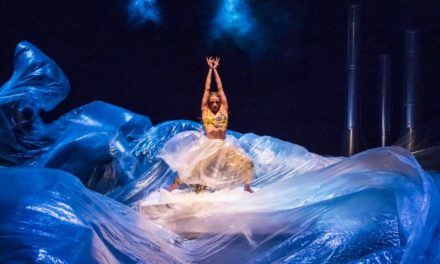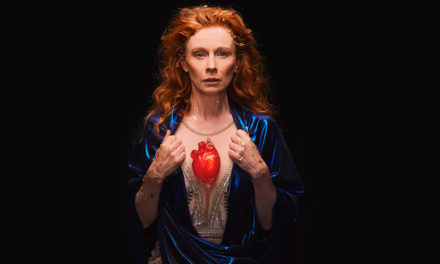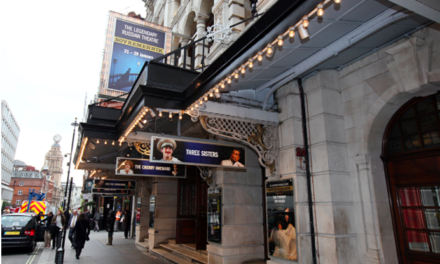David Malcolm has been one of the key organizers of the Between. Pomiędzy festival ever since it was created in 2010. In this essay, he presents his recollections concerning various events and programs that have been done throughout the years.
Eleven festivals, hundreds of guests and participants, scores of events — a dizzying variety of faces, of topics, of venues, of moments. Each participant — and some keep coming back — each organizer will have a different mosaic.
However, certain outlines — perhaps surprisingly — are clear.
I am struck by how faithful we have been to original principles. At the center is the theatre, particularly the avant-garde theatre, particularly the work of Samuel Beckett. Poetry and academic work come second but play a large role. Theatre practitioners, poets, and academics come together to listen to each other and often talk to each other. We cross between and among languages, above all, Polish and English, but not only. We are interested in education in a broad sense: we take the work to the people, we go into schools, schools come to us, we go to unusual venues, we go out sometimes onto the street and the pier.
If I have to sum up the frame of my mosaic — although something like a festival has not a frame; it is always coming into being, always fluid — so the watchword I place on the shifting shape of Between, it is translation, or better, trans-lation.
Translation in education. As I said, we go to schools, schools come to us. We trans-late, carry over, the academic, the scholarly into an educational context. Age groups vary, but my favorite group is somewhere between thirteen and eighteen. Give them hard poetry, demanding avant-garde theatre, happenings. Ask them to translate and back-translate between Polish and English. Ask always for a respondent praxis, for enactment, for performance — from us, from them. Let them build their own six-word narratives, ask questions of an enigmatic Stevie Smith poem, worry constructively (along with us) about a happening (by Martin Blaszk and Jon McKenna) on a cold morning on the banks of the Vistula. Encourage them (as Nicholas Johnson does) to work in an encouraging but rigorous environment, to develop ideas from a text, ideas embodied in radically interesting, beautiful, disturbing configurations. Hold a space for them, for us (for it is a space for us, too) to do that. And take that poetry, that rebarbative avant-garde text, that idea that pushes the borders of the conventions, even further – into the theatre, enact it in two languages, win audiences for the drama, the sounds, the force of verse, the intrigue of the play text, the wildness, the chance of the truly performative. And learn from that yourself. What possibilities of meaning come out when the text is enacted before a larger group of people? These spaces, these newly developing and transient force fields have always enlightened me.
Translation among media. I could choose many examples here. Przemysław Wasilkowski’s interweaving of Beckett, Shakespeare, Kane in a multi-facetted exploration of self and self-making. Wierszalin’s reworking of Włodzimierz Pawluczuk’s anthropology in Report on the End of the World. And trans-medial performances where you might not expect them, trans-lations to the unusual, where the interaction of site and performance carries meaning. Do I really remember Wierszalin’s the Tract on Mannequins (based on work by Bruno Schulz) on the beach in the evening in Sopot, with the water of the Bay lying wide and enigmatic behind a stage like an animated jewel box? Schulz’s hermetic inter-war Jewish world against an open stretch of water, a distant horizon, as night fell in an old German town, world on world, dream on dream, enacted on a chilly May beach in modern Poland. Trans-lation, indeed. Particularly illuminating for me have also been S.E. Gontarski’s memorable envisionings, enactments, en-screenings of Beckett-related material — . . . but the clouds . . . and Beckett on the Baltic — crossing among theatre space, film, and audience interaction. As from all good enactments, I came away moved and informed and stimulated to see Beckett in a way I had perhaps suspected but never fully realized before. (He’s late-nineteenth-century continental Romantic — let all Beckettians fling brickbats at me now!) And, as I think of them, these years become a procession of verbally and visually stunning (and I use the word advisedly) pieces of inter-medial trans-lation theatre: Gardzienice’s Pythian Oratorio in a high, bare church in the Gdańsk old town; Song of the Goat’s quite amazing riff on the Cassandra material. And more.
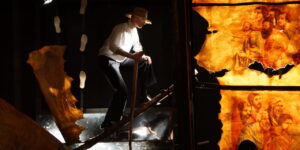
Rafał Gąsowski in Historyja. Photo courtesy of Teatr Wierszalin.
Theatre translation. Of course, much of what I have written already is about theatre trans-lation, but one project that is literally about translation is our work on an English version of Piotr Tomaszuk’s powerful redaction for Wierszalin of Mikołaj of Wilkowiecko’s fascinating Historyja o chwalebnym Zmartwychwstaniu Pańskim (Englished as The Historie of the Lord’s Glorious Resurrection). Mikołaj of Wilkowiecko’s text is dated to sometime in the 1580s and is an early Polish drama text and a fine miracle play focused on the aftermath of Christ’s crucifixion and resurrection (which is itself an interesting take on the Biblical material). The task that we were given by Wierszalin was to render the play in English in a way that might be accessible to modern audiences. There were seeming difficulties — an archaic vocabulary, a fairly strict pattern of eight-syllable rhyming couplets. In fact, the project offered a fascinating opportunity and was most enlightening for those of us in literary, theatre, and translation studies. The availability of existing medieval mystery and miracle plays in English, the possibility of achieving a patina of age in the text’s vocabulary and syntax and the translation opportunities that gave, the existence of a tradition of eight-syllable rhymed verse in English — all these made the work on the English version very rewarding and not at all impossible. The translation was published in a dual-language edition in 2017 to celebrate the twenty-fifth anniversary of the founding of the Wierszalin Theatre. To a considerable degree, this project enacted many of the underlying principles of Between.Pomiędzy: cooperation between theatre practitioners and academics; crossing language frontiers; making something that can, indeed, be enacted, performed; doing something that taught those involved a great deal about the matter in practical terms. A true act of translation and trans-lation.
And this year, 2020, circumstances force us or, perhaps, allow us to attempt a different trans-lation — into a virtual world, new media, new opportunities for learning and experience. Maybe new audiences. The Festival has never stood still. It certainly is not standing still now.
This post was written by the author in their personal capacity.The opinions expressed in this article are the author’s own and do not reflect the view of The Theatre Times, their staff or collaborators.
This post was written by David Malcolm.
The views expressed here belong to the author and do not necessarily reflect our views and opinions.

